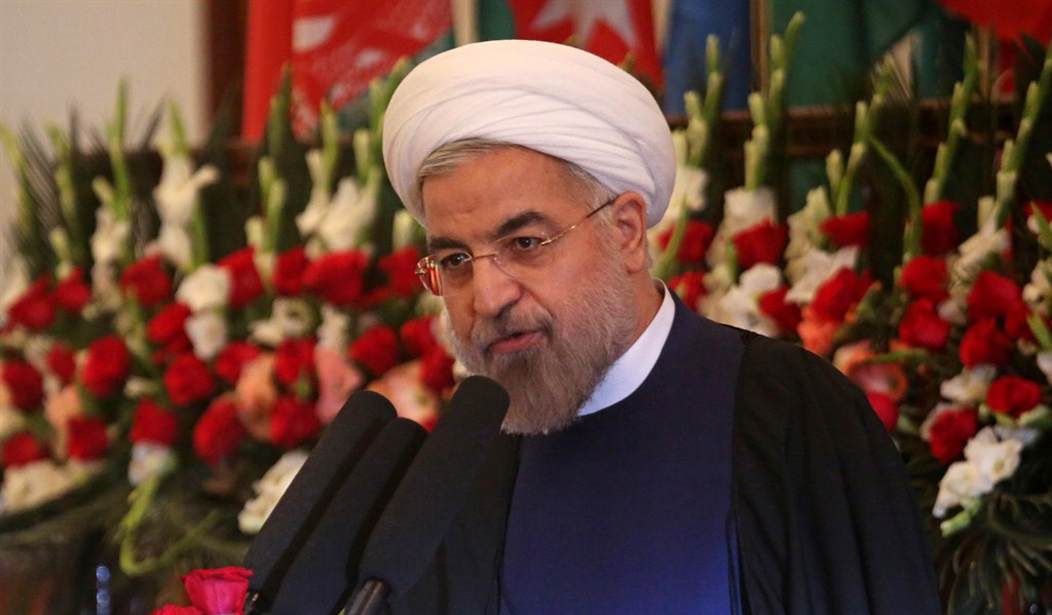President Obama’s trip to Saudi Arabia during the last week of March offers an occasion for reflection of the Middle East security situation, with special reference to the threat from Iran to the Saudi Kingdom and how to counter that threat by reaching out to the Iranian people.
The Kingdom is fearful of the nuclear dialogue Washington has with Tehran, irrespective of whether such negotiations are fruitful or not. On one hand, Saudi Arabia should be relieved because success in the nuclear talks would mean Iran agrees to abandon its quest to be a nuclear weapon state. On the other hand, Saudis even fear success because it signals Washington’s later disengagement, permitting Shiite Iran to embolden Shiites in the mainly Sunni-ruled Arab world.
Washington’s “pivot to Asia,” adds to disbelief in Riyadh about the credibility of the American commitment to stay engaged in the region. The Saudis are also concerned with perceptions of indecision in Washington about staying the course in the Middle East. Washington replaced London after it withdrew from “East of Suez,” which especially denoted the Gulf States.
The 1967-1968 UK decision under a center-left government was the significant final step in the country’s retreat from a worldwide role. Likewise, center-left politician, President Barack Obama, is more interested in economic issues in the “Middle West” of the United States than strategic concerns in the “Middle East.”
Recommended
While Saudi Arabia is fearful of nuclear dialogue adding to unrest in the Arab world, the White House informed the Kingdom that nuclear talks with Iran helped quell Iranian threats to regional stability. But such an optimistic reading overlooks a precipitous American withdrawal from Iraq, which opens the door to al Qaeda and Iranian-sponsored militias. The Kingdom also is concerned about failure to use American force against Bashar Assad when he crossed Obama’s red line about use of chemical weapons.
President Obama abandoned pro-American Iranian dissidents in Iraq, the Mojahedin. In face of Iranian regime threats, his actions breathed new life in Tehran’s efforts to subjugate Iraq and Arab Gulf states. Although there was a Bush administration pledge to protect Iranian dissidents if they disarmed during the 2003-2004 takedown of Saddam Hussein, Washington subsequently left them exposed to the not-so-tender mercies of Iranian proxies operating freely in Iraq.
There is speculation that the Saudis would like a new security framework, which might even include Israel. But that regime-focused entity, as suggested here, fails to include the Iranian people. Left out is the main dissident organization that rejects clerical rule—the National Council of Resistance of Iran (NCRI/Mojahedin). Perhaps because of a false perception that they lack means to help change the Iranian regime, Washington analysts pay less attention to them.
Not only does the Iranian regime pay more attention to the Mojahedin than all other groups because of the Mojahedin’s ability to rally opponents interested in bringing about a free Iran, key elements in the Saudi Kingdom also credit the Mojahedin with regime change potential.
In a 2008 interview with the author, Saudi Prince Turki expressed fear of Iran as an impending nuclear-arms capable state. Even prior to the 2008 election of Obama and his 2014 interim accord with Iran, Turki worried Washington would reach out to Tehran at the expense of Arab Gulf States. But when asked about the possibility of countering the Iranian threat by reaching out to the Iranian people in the form of the Mojahedin, Turki was lukewarm.
Prince Turki acknowledges the major role the Mojahedin played in overthrowing the Shah of Iran in 1979; but he worries needlessly that they might align with forces in the Kingdom that reject rule by the Royal family. He fails to distinguish between Islamists like al Qaeda who seek to topple the Kingdom and the Mojahedin, which practices a moderate brand of Islam, has no interest in stimulating revolt in Saudi Arabia, and is pro-American. But in another interview during December 2013, the Prince makes a distinction between Syrian moderates deserving support and radical Islamists who are not.
A symbol of regime change in Tehran to youths within Iran and expatriates worldwide, the Mojahedin are unconcerned with fomenting unrest in Saudi Arabia. They are under virtual imprisonment in Camp Liberty, Iraq and are subject to periodic attack by Iranian-sponsored militias. The shared interests between the Kingdom and Iranian dissidents in Iraq provide good reasons for them to work in tandem as counters to threats from the Iranian regime.

























Join the conversation as a VIP Member